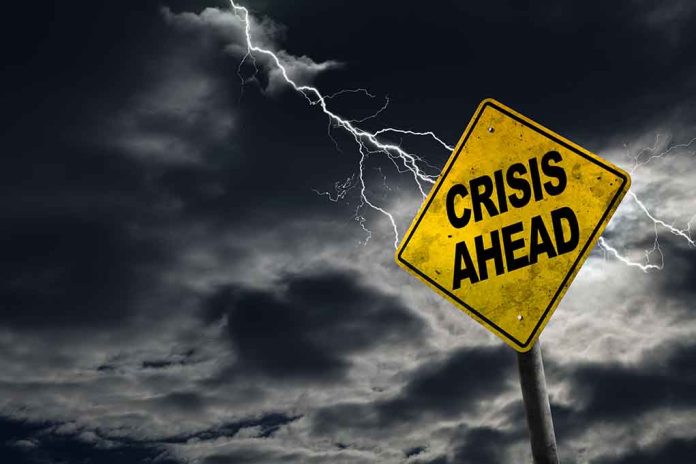
EU citizens urged to prepare for potential conflict as former Finnish President warns of Russian threat.
At a Glance
- Former Finnish President Sauli Niinistö calls for EU-wide crisis preparedness.
- Citizens advised to stockpile 72-hour emergency supplies.
- Report highlights Russia as primary threat to European security.
- EU lacks clear plan for armed aggression against member states.
- Recommendations include increased intelligence sharing and budget allocation for security.
EU Faces Urgent Call for Crisis Preparedness
A new report authored by former Finnish President Sauli Niinistö is sounding the alarm on the European Union’s lack of readiness for potential conflicts, particularly in light of ongoing tensions with Russia. The 165-page document, presented to EU Commission President Ursula von der Leyen, outlines critical steps for enhancing civil and military preparedness across the bloc.
Niinistö’s report emphasizes the need for a shift from reactive measures to proactive preparedness. It identifies Russian aggression as the primary threat to European security, though not the sole concern. The document underscores the interconnected nature of security among EU member states, arguing that an attack on one would impact all 27 countries.
🇪🇺⚠️ People living in EU should stockpile emergency supplies in the event of war breaking out or another major emergency, – Newsweek
The report was written by former Finnish President Sauli Niinistö. The EU should advise households to be prepared to be self-sufficient for a… pic.twitter.com/6rSokHo6S7
— Malinda 🇺🇸🇺🇦🇵🇱🇨🇦🇮🇹🇦🇺🇬🇧🇬🇪🇩🇪🇸🇪 (@TreasChest) October 31, 2024
Citizens Advised to Stock Up on Essentials
A key recommendation in the report is for EU citizens to prepare for potential emergencies by stockpiling essential supplies. Households are advised to be self-sufficient for at least 72 hours during crises. This includes having adequate food, water, medication, flashlights, and battery-operated radios on hand.
“As part of this strategy, the EU should advise households to be prepared to be self-sufficient for a minimum of 72 hours in the event of an emergency.” – Sauli Niinistö
The report suggests that EU member states should provide guidance to citizens on stockpiling, evacuation procedures, and accessing emergency services. This preparedness strategy aims to empower citizens and promote self-sufficiency in the face of various potential crises, including extreme weather events or armed conflicts.
Calls for Enhanced EU Security Measures
Niinistö’s report highlights significant gaps in the EU’s current crisis response capabilities. It points out the lack of a clear plan for responding to armed aggression against a member state, a concern amplified by ongoing Russian aggression towards Ukraine.
“We do not have a clear plan on what the EU will do in the event of armed aggression against a Member State. The threat of war posed by Russia to European security forces us to address this as a centerpiece of our preparedness, without undermining the work to prepare for other major threats.” – Sauli Niinistö
To address these shortcomings, the report recommends allocating at least 20% of the EU budget to security and crisis preparedness. It also calls for increased intelligence sharing among EU countries to better anticipate and respond to potential threats. These measures aim to strengthen the collective security of the EU and enhance its ability to protect its citizens in times of crisis.
Implications for European Security
The report’s recommendations come at a time of heightened concern over European security, particularly in light of Russia’s actions in Ukraine. It underscores the need for a unified and proactive approach to crisis management across the EU. By emphasizing citizen preparedness alongside institutional readiness, the report seeks to create a more resilient European community capable of withstanding various challenges.
As tensions with Russia persist and global uncertainties increase, the EU faces the challenge of balancing immediate preparedness with long-term strategic planning. The implementation of Niinistö’s recommendations could mark a significant shift in how the EU approaches security and crisis management, potentially setting a new standard for national and regional preparedness in an increasingly unpredictable world.
Sources:
- Europeans advised to stock up on food and water in case of war with Russia
- Europeans Told to Stockpile Food in Case of War With Russia







